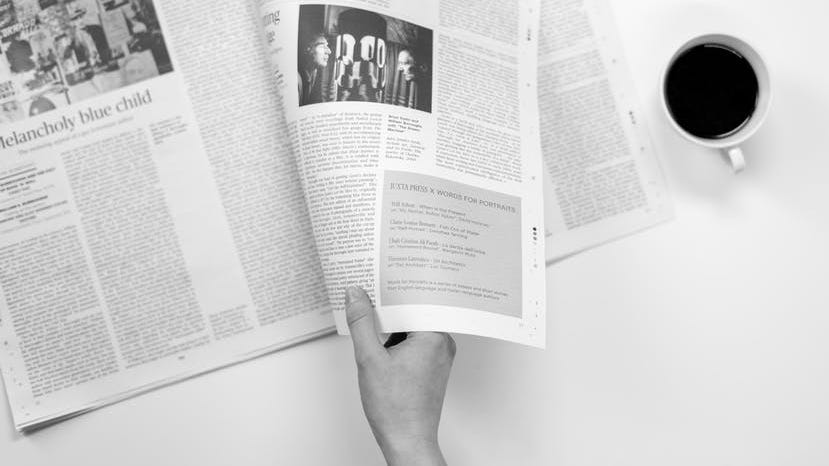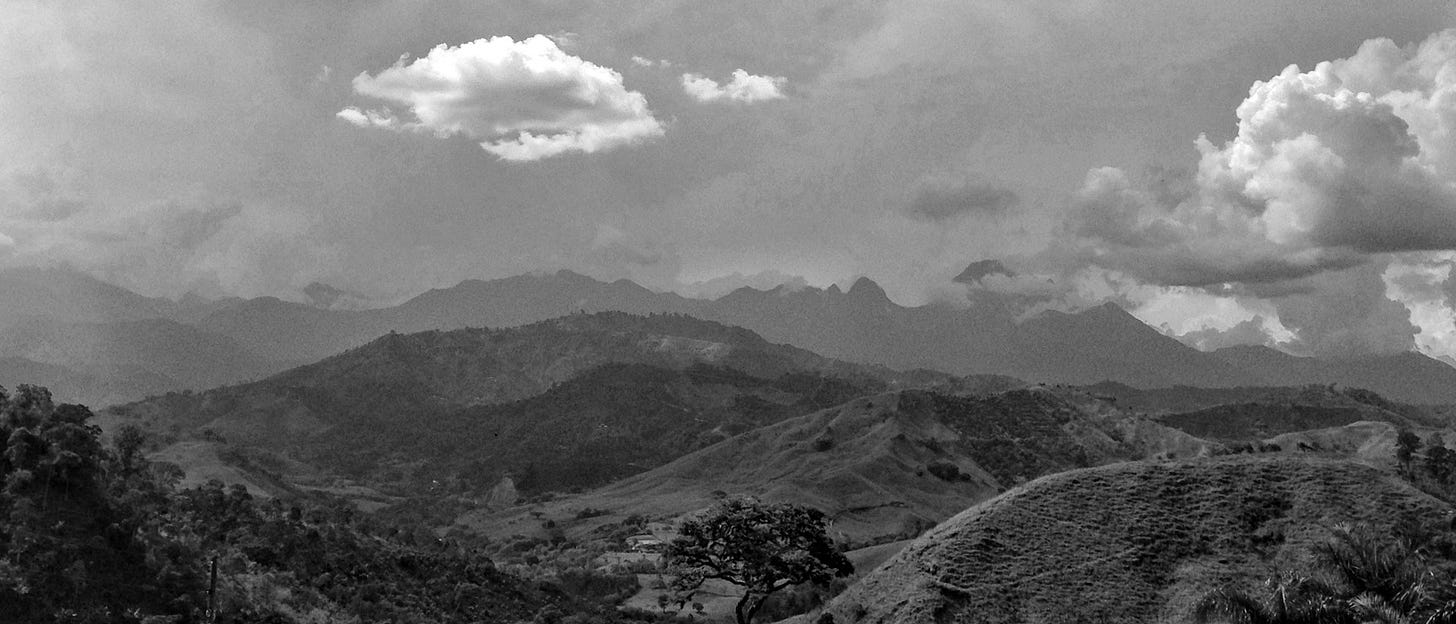Coffee News Roundup: Week Ending January 21st
This week, lower production predicted in Brazil, Starbucks drops vaccine mandate, foot traffic to coffee chains increases 7.5% during the pandemic, and Italians aren't happy with espresso price rise.
The end of the week brings another Coffee News Roundup, keeping you up to date with all the, well, coffee news.
Volcafe Sees Second Year Of Coffee Shortages On Low Brazil Crop - Via Bloomberg
Volcafe expects another year of reduced production in Brazil, with the Swiss coffee trader predicting a 17% smaller crop than previously expected.
“Global production is expected to fall 1.4 million bags short of demand in the season that starts in October in most countries,” Bloomberg says of the report from Volcafe.
This will leave Brazil unable to build up its usual coffee stockpiles, and means more production from other countries will be needed to “boost supply and prevent further rationing by demand.”
Starbucks Drops COVID Vaccine Mandate After Supreme Court Ruling - Via NPR
After the United States Supreme Court shot down the Biden administration’s plan to require vaccinations or regular testing at large companies, Starbucks has reversed its vaccine mandate for its 228,000 employees across the country.
"We respect the court's ruling and will comply," Chief Operating Officer John Culver wrote in a memo, despite the ruling allowing businesses to implement their own mandates.
Starbucks had announced a vaccine-or-test rule for all employees just two weeks ago—with Culver saying that it was up to leadership to “do whatever we can to help keep you safe and create the safest work environment possible”—although the company noted that the only reason it was doing so was because the vaccine mandate was (at the time) required.
While many large companies have followed suit by dropping the vaccine requirement, others, such as the banking giant Citigroup and the clothing manufacturer Carhartt, have kept theirs in place.
Frontline baristas were not enthused with the change. “Starbucks reversed their vaccine mandate without discussing the issue, or negotiating about it, with the unionized partners,” said Starbucks Workers United in response to the announcement.
Starbucks’ new stance—”I want to emphasize that we continue to believe strongly in the spirit and intent of the mandate,” Culver wrote in this week’s memo—continues their fence-sitting attitude towards COVID safety, such as “strongly recommending” that customers wear masks inside their stores.
Coffee Chains Remain Virtually Unfazed By The Pandemic - Via The Takeout
Speaking of giant coffee chains, there’s really no indication that the last two years have been hard on Starbucks et al—at least, according to a new white paper by foot traffic analysis firm Placer.io.
In fact, they found that foot traffic to coffee chains had actually increased over 2019, up 7.5% while the dining sector as a whole was down 1.8%.
The white paper only looked at the big US chains such as Starbucks, Dunkin’, Dutch Bros., Caribou Coffee, and Peet’s, and of course the larger the company the easier it is to weather pandemic-related storms.
However, the analysis also concluded that coffee shops with outdoor spaces became a key community lifeline for many people left with few alternative options: “As more people looked for ways to meet with friends and family outdoors, buying a coffee to-go and sitting on an outdoor bench transformed from a lame date idea to a popular rendezvous concept.”
Melbourne’s St. Ali Faces Backlash Over Covid Test Promotion - Via Sprudge
Jeez, this is turning into quite the pandemic-focused roundup.
The Omicron variant is ripping through Australia, just as it is everywhere else. A country that had worked hard to keep COVID at bay has now overtaken the US and UK with daily infections per capita, which has likewise put pressure on the supply of Rapid Antigen Tests (RATs).
That’s where St. Ali comes in. The Melbourne-based coffee roaster sent out a marketing text to “special VIP customers” offering two free RATs with the purchase of $160 or more from the company’s online store. After a backlash, including lots of salty language and calls for a boycott, St. Ali apologized—sort of.
The message reads, in part, “We believed this was a way of supporting our customers who purchased from us regularly, but the message has been lost. We can see in hindsight it was inappropriate.”
This “lacklustre” apology didn’t go down too well in Australia, while the company also pledged to donate any further tests that it receives to a local Melbourne charity.
Italians All Steamed Up Over Rising Cost Of Espresso - Via The Independent
The cost of an espresso in Italy could rise €0.50 this year, and Italians are not happy about it.
Inflation is “transforming a daily ritual into a luxury for the rich,” according to Furio Truzzi, head of the Italian consumer rights group Assoutenti.
Most cafes charged €1 for an espresso at the beginning of last year, according to Assoutenti, but that cost has risen to €1.10 and the group predicts a further rise to €1.50 this year. “We are receiving numerous complaints denouncing the rise in prices of coffee,” Truzzi said. Espresso is such an embedded part of life in Italy that one commenter suggested that it is, in fact, a right and “should be free.”
As Sprudge points out, “the rising cost of espresso is the downstream effect of higher coffee prices on the commodities market, both for Arabica and Robusta coffees.”
More Headlines
Luckin Coffee Plans To Relist In U.S. Two Years After Accounting Fraud
Pret A Manger USA Agrees to $677K Settlement in Biometric Privacy Case
Results from the First Ever Indonesia Cup of Excellence
The Week In Coffee Unionizing
The Starbucks unionization drive is now coast to coast, with a store in California joining cafes in Virginia, Maryland, and more stores in Massachusetts and Arizona in petitioning the National Labor Relations Board for union elections.
As of January 21 (more keep popping up so it’s hard to keep track), that brings it to 30 stores across 14 states—plus, apparently, Canada as well.
Meanwhile, more reports of union-busting behaviour come out of Mesa, Arizona, as workers there begin to receive their ballots.
Plus, it’s amusing to note that even publications like Fortune are coming around to the pro-union side. In a piece entitled The business case for union busting is eroding, the writer notes that “there is nothing more capitalist than a group of people banding together to improve their pay and benefits.”
This is from a magazine that was founded to be "the Ideal Super-Class Magazine" for "wealthy and influential people."
Is Coffee Good For You?
Just the right amount of coffee intake is what’s needed for epilepsy sufferers to protect against seizures, according to a new study. The research found that too much and too little coffee was linked to an increased risk of a specific seizure type.
The study, published in Epilepsy and Behaviour, found that “the odds ratio (OR) of reporting at least one [focal to bilateral tonic-clonic seizure] per year was 2.05 in those with high coffee consumption and 1.6 in patients who never drank coffee compared with participants with moderate coffee consumption.”
The authors encouraged more study, while noting that, "the main message is that coffee is not contraindicated if you have epilepsy. But maybe the level of coffee consumption is important to discuss.”
Meanwhile, people who drink more coffee have a lower risk of endometrial cancer, a type of cancer that begins in the lining of uterus. This is according to a new analysis of relevant studies published in the Journal of Obstetrics and Gynaecology Research. Looking at 24 studies, the analysis found that “in the highest category of coffee intake had a 29% lower relative risk of developing endometrial cancer than those in the lowest category.” So that’s good.
What To Read
How James Hoffmann Became the Coffee Expert by Rachel Wharton. Illustrations by Koren Shadmi
Trieste: Italy's Surprising Capital Of Coffee by Susan Van Allen
Until next week, drink good coffee.






